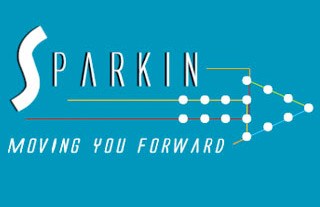Agency to Client-Side Means What?
At some point many of you consider a client-side move very often hoping for decision making authority or the ability to impact brand beyond comms’, Some of your peers that have made the move to the client-side kindly told me what the key difference is working for corporate America.. A few common themes emerged:
Ownership of work – “This isn’t a business I’m dipping my toe in to for a second, I’m responsible.” (Jackie Jantos, Spotify)
Skill Recognition/Proving Yourself – “Once client-side, planning speciates pretty quickly and is very different for a number of reasons not least because of an understanding of what planners do.” (Magnus Bair, HP Enterprise)
Iterative Nature of Work v Discrete projects – “On the client-side things never seem to be done” (Scott Reddick, Charles Schwab)
Broader more complex work focus – “You need to be able to work with big business and big processes.” (Julian Cohen, Constellation Brands)
That said, what do you think?
Stuart
Articles and commentary that might be of interest…
- Marketing Careers. Should you be an agency or a brand marketer?”
- Going In-House. Why You Should Take Your Agency Expertise In-House. AdAge – 09/17
- Developing your skill set on the other side of the tracks – CMO 08/17
- Hell on Earth or Nirvana? Client-Side Strategic Planning – Stuart Parkin 10/16
- From agency to Client. Making the switch – Campaign 07/16
- Working for a marketing agency versus client-side – Smart Insights 12/15
- Client Side Versus Agency Side marketing Careers – Morgan McKinley 06/16
- Instability and lack of calibrated pay among the key reasons agency folk head in-house – Marketing 01/17
www.sparkinsearch.com
Stuart: 646-280-5147
A ‘Complete’ Strategic Planner?
In an environment when strategic planners are expected to be a bit of everything, (quant and ’qual, digital plus analog, brand not simply channel, experience not simply story… I asked a number of strategic planning department heads what they thought is key.
What key quality matters most?
Of all the skills and attributes mentioned, it was ‘curiosity,’ that was top of the pile, Gabrielle Tenaglia, (Globality) reflecting others’ beliefs in the importance of a constant desire for growth. Closely following were attributes that allow the curiosity to be satisfied. ‘Generosity’ highlighted by Conner Huber, (McGarry Bowen) ‘Versatility’ by Shobha Sairam, (The & Partnership) while Andrea Ring (Big Spaceship) advocated the importance of confidence/strong point of view while Marta LaRock (Geometry) pointed to the importance of ‘passion’ as key. A number of you also mentioned ‘empathy’ as being pivotal to being effective as a strategist.
The good news is that despite all that is apparently needed for todays’ generalist to thrive, what you regard to be a truly effective remains what’s always been key, an interest in and ability to understand people.
Below are a few links to articles that throw further light on some of the traits you highlighted.
Enjoy!
Stuart
PS. Please let me have your ideas on areas you would like to be covered.
Articles and commentary that might be of interest…
- Curiosity is as important as intelligence
- Open-minded people have a different visual perception of reality
- Authentic Happiness – University of Pennslyvania
- Empathy is actually a choice
- Confidence matters as much as ability
- 5 must-read articles on empathy and UX design
- The power of generosity
- Versatility is the key to effective leadership
Strategic Planning Jobs – Where are they going?
As communications move from mass to personalized, data specialists and consultancies have been gaining ascendancy but it’s unclear exactly how things will play out. There is in fact risk that most agencies, as well as consultancies, are to some extent failing, “The big consultancies have underestimated the value of creativity while agencies have under exploited the value of business analytics” (Ivan Pollard, SVP Coca Cola).
Agencies have for some time now been adjusting their models to incorporate data analytics in an attempt to ensure that creative insight provides measurable benefits.
Clients meanwhile, increasingly are moving to control their data, which will create more strategic opportunities on the client-side.
As the agency business is reintegrating its offering opportunity will exist increasingly for generalists.
What do you think? For more on the trends, some articles to provide context.
Stuart
Articles and commentary that might be of interest…
- How marketing is changing and why agencies are not keeping pace 5/17
- Consultancies – The race is on! 4/17
- Consultancies are buying agencies. What does it mean for marketing?
- New business trends. How they affect digital agencies
- Programmatic trends: Advertisers still relying on agencies
- Creative industry report 4/17
- Combating the rise of in-house agencies
- A CMO’s view: How Intel head of creative is building the brand in-house
Syncing timelines for Success – Your Employer’s and your own
About to accept or start a new job – Why you might not be doing what you expected to be doing, at least not for a while.
You have reached a point in your current job where you are stuck, in terms of feeling as though you are no longer progressing.
Practically, the promotion you want is blocked or, you’ve worked on the same business for three years and the agency doesn’t want to move you or, you’ve worked on all the major accounts of the agency.
You might be frustrated because you don’t feel you can learn anything new, meanwhile you see the world and your peers, all progressing to bigger and better things.
Or, you’re dealing the nightmare scenario, a difficult boss or client that is making your life a living hell. You leave as nothing is likely to change any time soon.
You are ready to make a move. The good news is, you are presented with seemingly, a great career building opportunity. Team, culture, accounts, strategic approach all check out.
At this stage what could go wrong?
You clearly know better than anyone what is attractive to you. What role would allow you to excel, right? Well, yes. And with the information you have everything stacks up. So far so good.
Typically you are hired to address specific client needs but sometimes you are recruited more for where the agency aspires to be versus where the agency is now.
Most individuals will accept at face value, the reason why they are being hired. And most employers will hire specifically for the reasons they say they are hiring.
In all situations’ you are being hired for a recognized skillset. But, though your future employer knows what you can do, they may be hiring you for reasons slightly different to those you signed up for.
Key for you, what job do you want to do now, what’s mission critical versus those things that are ‘nice-to haves’? And do your priorities reconcile with the work your future employer does and expects you to do immediately, versus at some point in the future. Or, is there an understanding that there is a timeline before you get to really use your expertise in the way you want to. Sometimes, there is no understanding!
A classic example, you are hired by a digital agency whose work may be downstream of the lead creative agency. Your new employer hires you not because of an epiphany in the importance of creative strategy rather you are hired to act as a counterbalance to creative strategist working for the lead agency! It’s a defensive hire even if represented otherwise.
The most obvious (and critical) example of a disconnect between employee/employer timelines, intended or otherwise, occur when employers are hiring at the vanguard of organizational or business transformation.
You are promised that your expertise is key to moving the agency in the direction of that change. The problem is that the organization might not be ready for this planned evolution.
Organizational changes that needed to happen prior and concurrent to your hire did not happen or are happening but at a much slower pace. The result for you is, what you hoped to achieve in your new role might take two years versus two months.
A further threat for you, gate keepers/the old guard that might be sitting on agency revenue, oppose the change you bring, extolling what has worked in the past. These individuals or cliques may be perceived as too ‘important’ (despite the fact you were hired to change things) to challenge due to fear if they left or are fired, the revenues they are sitting on might go with them.
There will always be potential challenges beyond yours and to a large extent the agency’s control. It’s key for you to know that your expertise aligns with the organizational needs and ambition of your new employer for the medium but also for the short term.
Having a sense of who key stakeholders are is a given but knowing that they support your expertise is vital. Two action steps you should pursue at interview stage:
Have a few additional meetings beyond those you are directed to have; Ask a few more searching questions that you ordinarily might not ask. These two actions alone may be the difference between a poor move and a great career transition.
Ultimately, what makes your next career move truly redefining in a positive way, is not only clarity about your own objectives and those of your employer but to know that they and the key stakeholders of which they are a part, are aligned.
Bespoke Career Choices
When looking for a job most strategy planners ask ‘what’s on the shelf? (well not literally) but as if going in to a store, they ask ‘what have I got.?’ You all have much more power than you could ever know and a more bespoke role is within reach. The key to bespoke is knowing what you want and having the confidence to pursue it. (This doesn’t mean your feet are not on the ground and pragmatism goes out of the window.) This is why I ‘always’ ask, ‘moving forward, what is your ideal next career challenge/what is progression for you?’















